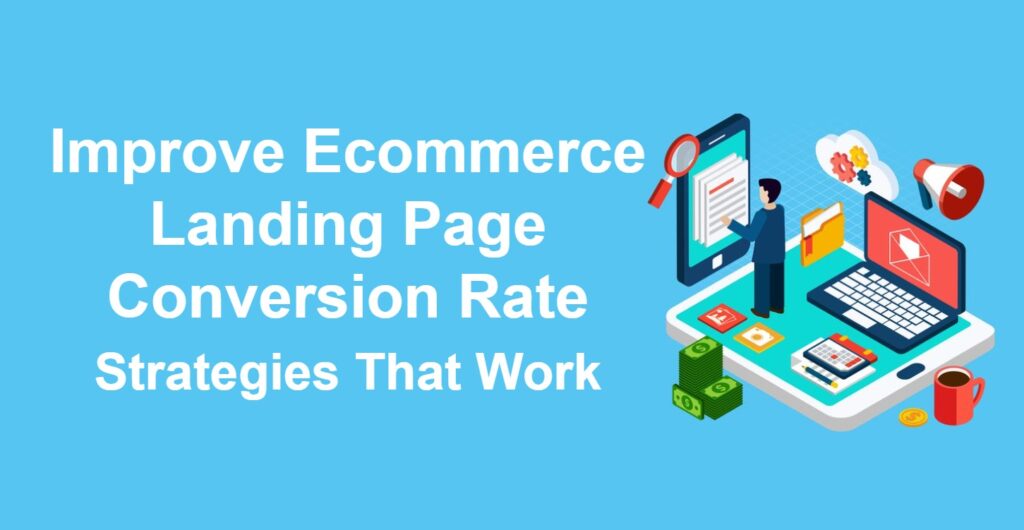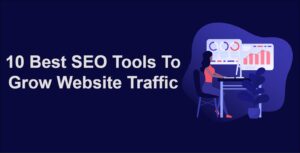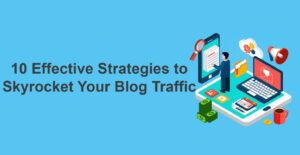Are you an ecommerce business owner struggling to get the desired results from your landing pages? Don’t worry; you’re not alone. Landing pages play a critical role in driving conversions and sales for your online store.
In this guide, we’ll dive deep into effective strategies to enhance your ecommerce landing page conversion rate and boost your revenue.
Improving your ecommerce landing page conversion rate requires a combination of strategic thinking and ongoing optimization. By focusing on user experience, crafting compelling content, and continuously testing and refining your approach, you can create landing pages that effectively guide visitors toward making a purchase.
Every aspect of your landing page, from design to copywriting, plays a role in influencing conversions. With dedication and a commitment to understanding your audience, you can unlock the true potential of your ecommerce landing pages and drive substantial growth for your online store.
What Are Ecommerce Landing Pages?
Ecommerce landing pages are standalone web pages specifically designed to encourage visitors to take a specific action, such as making a purchase, signing up for a newsletter, or downloading a resource. Unlike your main website, landing pages are focused on a single objective, making them a powerful tool for increasing conversions.
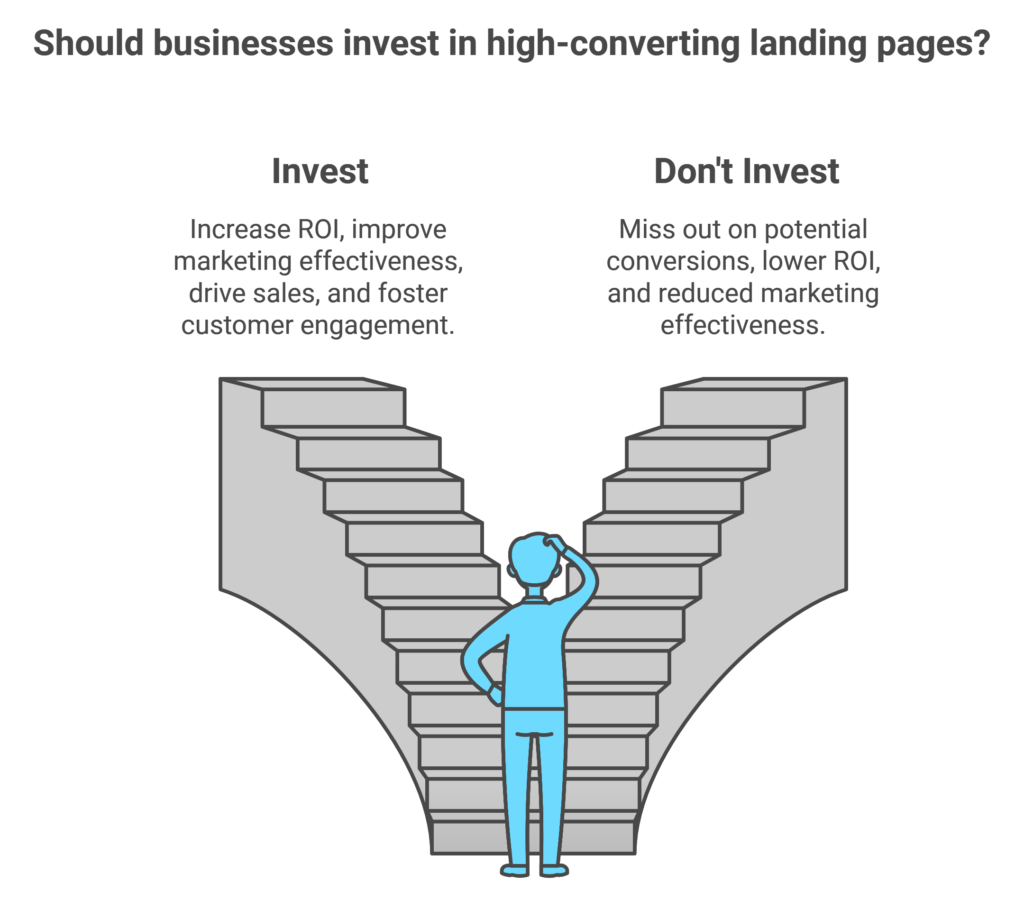
The Importance of Landing Page Conversion Rate
The conversion rate of your ecommerce landing pages directly impacts your bottom line. A higher conversion rate means more customers completing desired actions, leading to increased sales and revenue. Therefore, optimizing your landing pages is crucial for the success of your online store.
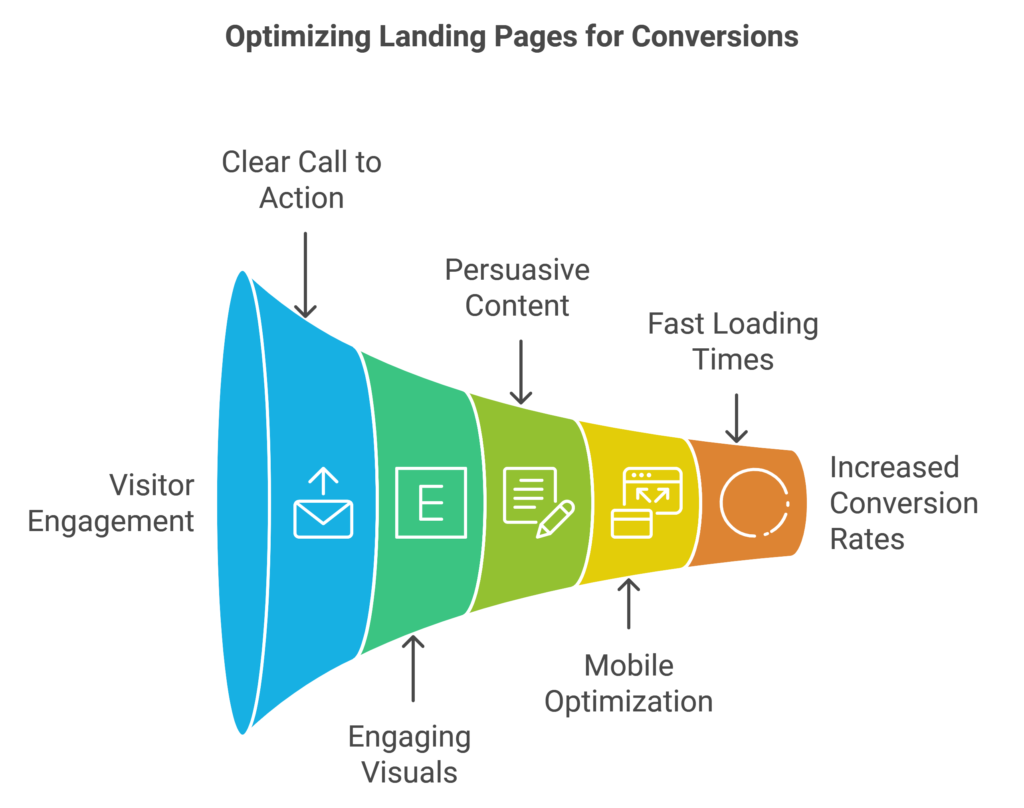
Strategies to Improve Ecommerce Landing Page Conversion Rate
Here are several effective strategies to improve the conversion rate of eCommerce landing pages, drawing from the provided search results:
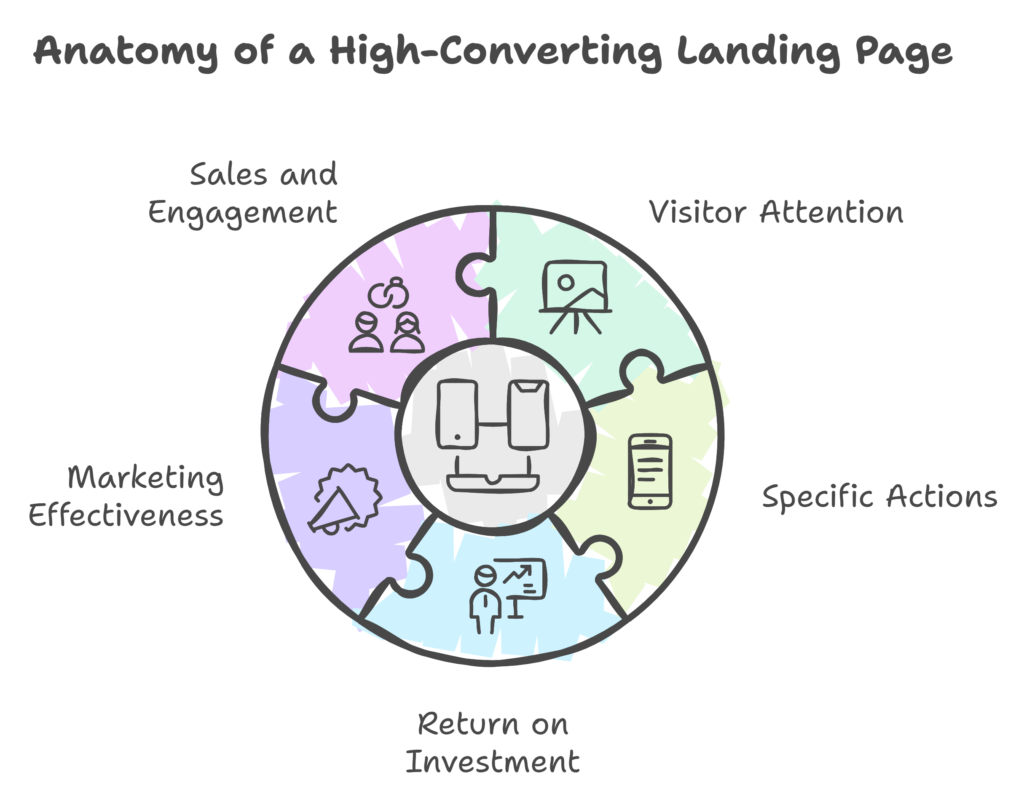
Strategies to Improve eCommerce Landing Page Conversion Rate
- Define Clear Goals
- Importance: Establishing a specific goal for your landing page helps guide its design and content.
- Implementation: Determine whether the goal is to sell a product, capture leads, or promote a sale. This clarity will influence your messaging and call-to-action (CTA) placement.
- Craft Compelling Headlines
- Importance: The headline is crucial for grabbing attention and conveying the value proposition.
- Implementation: Use clear, benefit-driven language that resonates with your target audience. A strong headline can significantly impact initial engagement.
- Optimize Page Load Speed
- Importance: Slow-loading pages can lead to high bounce rates and lost conversions.
- Implementation: Optimize images, minimize code, and leverage browser caching to ensure quick load times. Research indicates that even a one-second delay can reduce conversions by 7%
- Focus on a Single Call-to-Action (CTA)
- Importance: Having multiple competing CTAs can confuse visitors and dilute their focus.
- Implementation: Design your landing page around one primary CTA that directs users toward the desired action (e.g., “Buy Now,” “Sign Up”). Pages with a single link see higher conversion rates
- Use High-Quality Visuals
- Importance: Engaging visuals can capture attention and enhance the overall appeal of the landing page.
- Implementation: Incorporate high-quality images or videos relevant to your product. Research shows that using videos on landing pages can increase conversions by up to 86%
- Incorporate Social Proof
- Importance: Testimonials, reviews, and case studies build trust and credibility with potential customers.
- Implementation: Display customer feedback prominently on the landing page. Pages with social proof convert at higher rates compared to those without
- Create an Enticing Offer
- Importance: Providing an incentive can motivate visitors to take action.
- Implementation: Offer discounts, free trials, or valuable resources in exchange for contact information or purchases. Ensure that the offer is relevant to your audience’s needs
- Limit Distractions
- Importance: Reducing distractions helps keep visitors focused on the conversion goal.
- Implementation: Eliminate unnecessary navigation links and other elements that could divert attention from the primary CTA.
- A/B Testing
- Importance: Testing different versions of your landing page can identify what elements work best for your audience.
- Implementation: Experiment with variations in headlines, images, CTAs, and layouts to determine which combinations yield the highest conversion rates
- Utilize Above-the-Fold Content Effectively
- Importance: The content visible without scrolling (above-the-fold) is critical for capturing immediate interest.
- Implementation: Place key information, including the main value proposition and CTA, at the top of the page to ensure it’s seen right away
- Engaging Copy
- Importance: The copy should address visitors’ pain points and clearly communicate benefits.
- Implementation: Write concise, persuasive copy that speaks directly to your target audience’s needs and motivations.
- Mobile Optimization
- Importance: With increasing mobile traffic, ensuring a seamless mobile experience is essential.
- Implementation: Design responsive landing pages that provide an optimal viewing experience across all devices.
Implementing these strategies can significantly enhance the conversion rates of eCommerce landing pages. By focusing on clear goals, compelling visuals, effective CTAs, and user-friendly design, businesses can create landing pages that not only attract visitors but also convert them into customers effectively. Regularly testing and optimizing based on performance data will further improve results over time.
Create Clear and Concise CTAs
Your call-to-action (CTA) buttons should stand out and clearly state what action you want users to take. Use action-oriented language, such as “Shop Now,” “Get Started,” or “Claim Your Offer.” Make sure your CTAs are easily clickable and prominently displayed.
Streamline Page Design
Keep your landing page design clean and focused. Avoid clutter and distractions that could divert visitors’ attention from your main goal. Use a simple layout, high-quality images, and consistent branding to build trust and professionalism.
Use High-Quality Images and Videos
Visual elements play a significant role in engaging visitors and showcasing your products.
Use high-quality images and videos that highlight the features, benefits, and usage of your products. Incorporate product demos or customer testimonials to build credibility.
Implement Social Proof
Customer reviews, testimonials, and user-generated content can greatly influence purchasing decisions. Display genuine feedback from satisfied customers to reassure visitors that your products are worth buying.
Offer Limited-Time Promotions
Create a sense of urgency by offering time-limited promotions or discounts. Highlight the value of the offer and clearly communicate when it expires. This can encourage visitors to take immediate action.
Optimize Loading Speed
Slow-loading pages can lead to high bounce rates and decreased conversions. Optimize your landing page for fast loading times by compressing images, using browser caching, and minimizing unnecessary scripts.
Implement Trust Signals
Building trust is crucial for online conversions. Incorporate trust signals such as security badges, payment icons, and privacy statements to assure visitors that their information is safe and transactions are secure.
A/B Testing and Continuous Improvement
Conduct A/B Tests
A/B testing involves creating multiple versions of your landing page and testing different elements to see which version performs better. Test variables such as headlines, CTAs, colors, and layouts to identify what resonates with your audience.
Analyze Data and Insights
Regularly monitor your landing page’s performance using analytics tools. Identify patterns, track user behavior, and understand where users drop off in the conversion process. Use these insights to make informed improvements.
Optimize for Mobile Devices
With a growing number of users accessing websites on mobile devices, ensure your landing pages are fully responsive and provide a seamless experience on smartphones and tablets.

